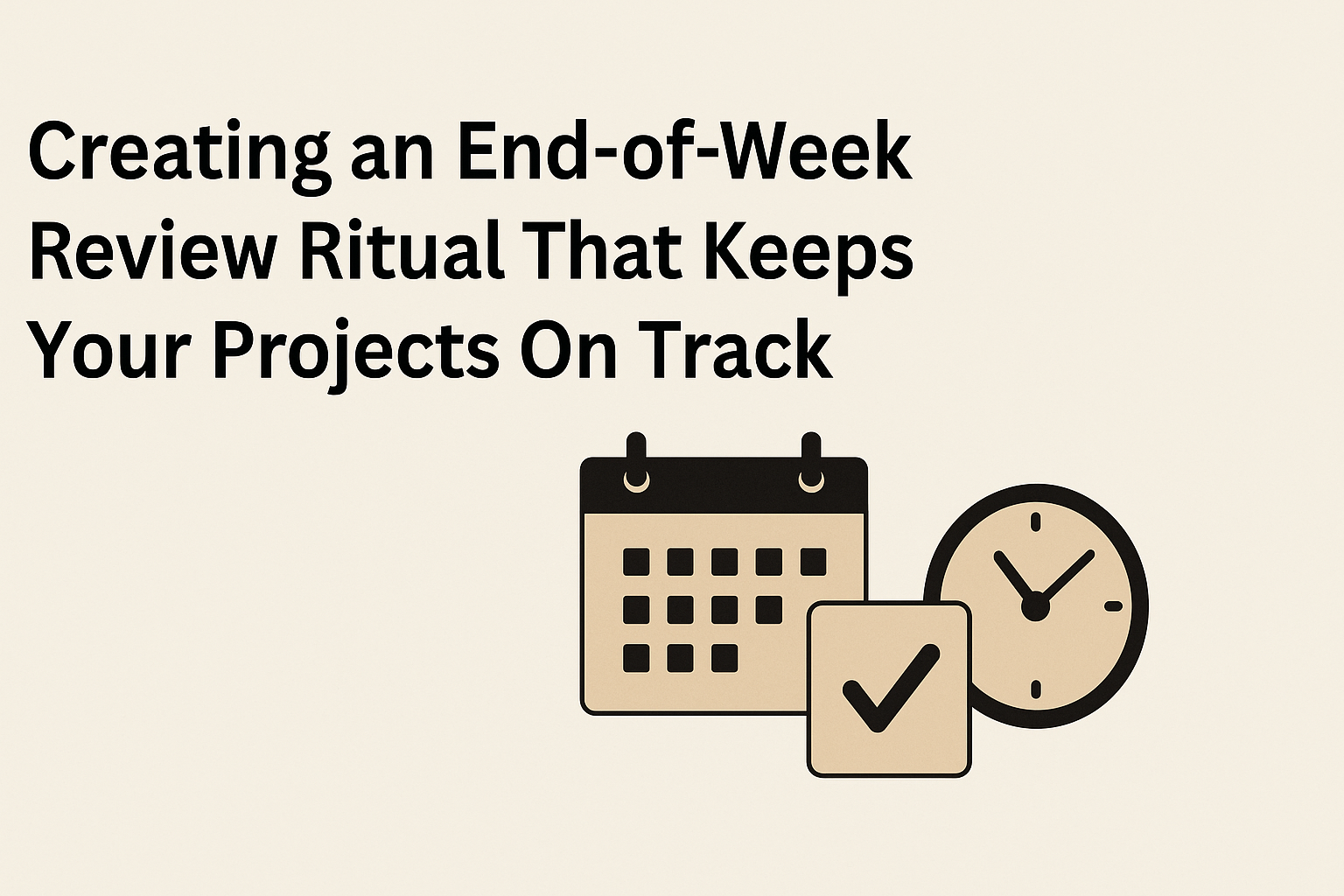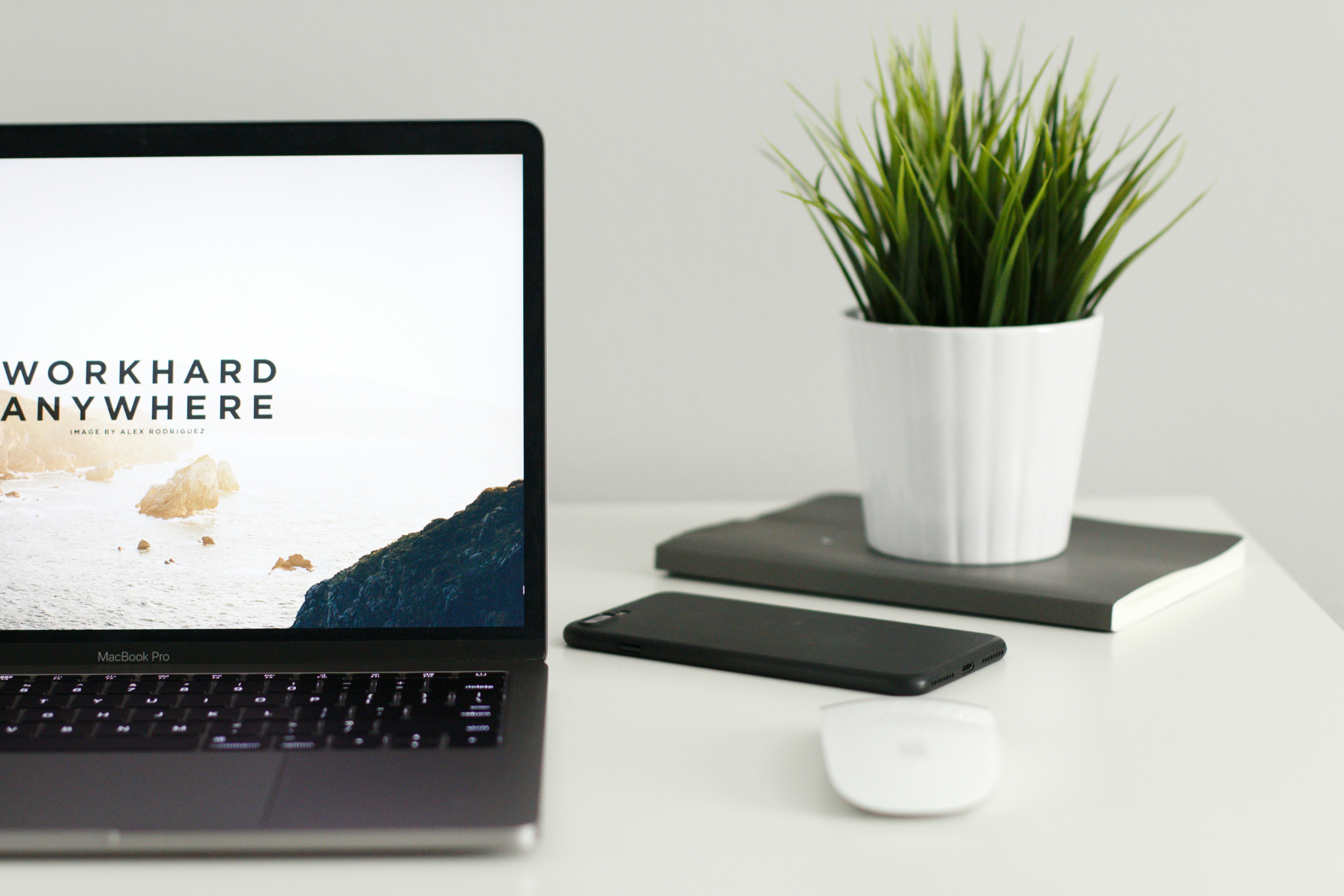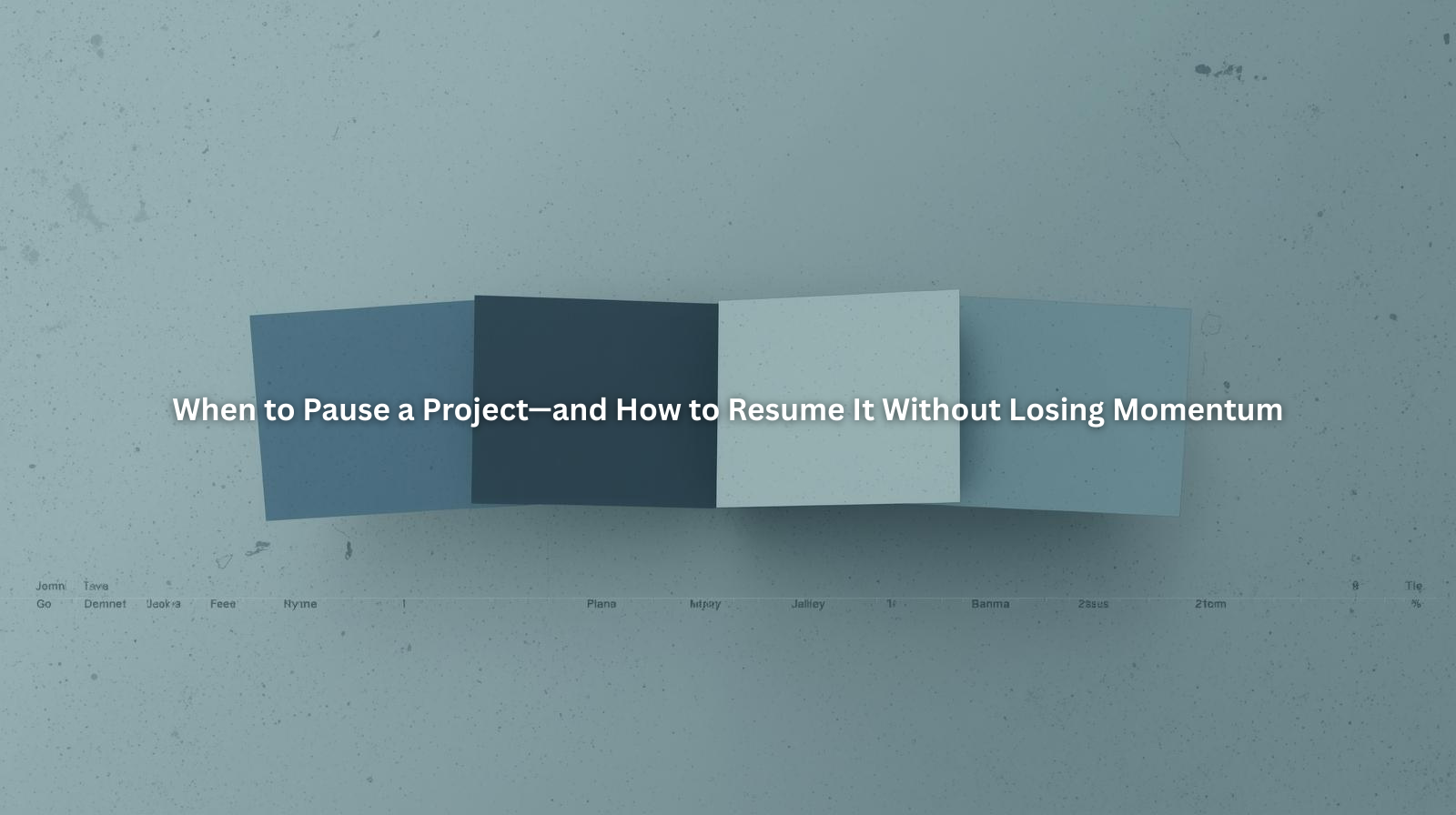Creating an End-of-Week Review Ritual That Keeps Your Projects On Track

Table of Contents
- Why Freelancers Need a Weekly Review (Not Just a To-Do List)
- The Real Cost of Not Looking Back
- What Makes a Weekly Ritual Actually Work
- What to Review Each Week (Without Making It a Big Production)
- Turning This Into a Habit That Sticks
- How ProjectBook.co Supports End-of-Week Review
- FAQ: Weekly Planning for Freelancers
1. Why Freelancers Need a Weekly Review (Not Just a To-Do List)
If you’re running your own business, chances are you’ve got plenty of to-do lists. You might even have multiple tools, apps, or sticky notes telling you what to do next. But knowing what’s next isn’t always the same as knowing how things are going.
That’s where a weekly review comes in. It’s a quiet pause to take stock of where your projects stand—not just what’s due, but what’s working, what’s delayed, and what needs your attention next week. For freelancers, especially those juggling multiple clients, this moment of reflection can mean the difference between finishing Friday in a fog… or wrapping with confidence and a plan.
And the best part? It doesn’t have to be long or complicated. Just 15 to 30 minutes can realign your focus and help you end the week feeling like you’re steering the ship—not clinging to the side.

2. The Real Cost of Not Looking Back
When you skip the end-of-week review, it often catches up to you later. Tasks fall through the cracks. A deadline sneaks up unexpectedly. You realize you forgot to follow up with a client who’s been waiting for your reply. And suddenly Monday morning feels more like triage than a fresh start.
You don’t need to run a team or a complex operation to feel this effect. Even solo freelancers benefit from taking a moment to process the past few days. Without it, your brain ends up doing double duty—trying to remember everything, carry everything, and somehow plan forward at the same time.
Reviewing your week gives your brain a break. It clears mental clutter, closes open loops, and lets you walk away from work for the weekend knowing nothing is left floating in the air.
3. What Makes a Weekly Ritual Actually Work
The key to a weekly review that sticks? Make it simple, repeatable, and kind. This isn’t a corporate performance review—it’s a small act of care for your future self.
It should happen at the same time every week, ideally when your brain is starting to slow down anyway. Late Friday afternoon is great for most freelancers, but if you prefer Sunday resets or Monday morning reflections, that’s okay too. What matters most is choosing a rhythm you’ll actually follow.
You don’t need complicated forms or long checklists. A short list of questions and a space to write your thoughts is enough. Over time, this becomes less of a chore and more of a grounding ritual—your way of staying steady in the swirl of client work.
4. What to Review Each Week (Without Making It a Big Production)
Start by looking at what got done. Which tasks or deliverables moved forward? Did you hit any milestones or finish a project phase? Give yourself credit for what’s working, even if it’s not flashy.
Next, scan for anything that feels stuck. Are you waiting on feedback from a client? Did a task take longer than expected? Did something fall off your radar? You don’t need to fix everything right now—just make note of it so Monday-you isn’t surprised.
Finally, zoom out. What’s coming up next week? Do you have any calls or deadlines that need prep? Are you overbooked and need to renegotiate timelines? This is your chance to get ahead of the stress—not by hustling harder, but by noticing early.

5. Turning This Into a Habit That Sticks
Habits only stick when they’re helpful and easy to return to. Your review ritual should feel like a conversation with yourself, not a rigid report card. Brew a cup of something, play some music, and make it a moment of care.
You can use a notebook, a document, or a workspace like ProjectBook—whatever keeps things easy to find and return to next week. The key is consistency, not perfection. Some weeks you’ll write more, some less. But even a few quiet minutes can make Monday smoother.
You might even surprise yourself. When you get into the rhythm, you’ll start catching patterns earlier, planning more intuitively, and wrapping up the week with more clarity than ever before.
6. How ProjectBook.co Supports End-of-Week Review
ProjectBook was designed for moments exactly like this—when you want to step back, see the big picture, and make decisions without stress.
With ProjectBook, you can see all your active projects at a glance, organized by phase, priority, or deadline. It’s easy to open up your project dashboard on a Friday and instantly check what moved, what didn’t, and what’s waiting on someone else. You can leave notes for next week, mark projects as paused, and tag tasks that need attention first thing Monday.
Unlike overwhelming project management tools, ProjectBook stays simple—so you don’t need to manage your management. You just open it, reflect, and reset. That’s how freelancers stay consistent, especially when they’re wearing every hat in the business.
7. FAQ: Weekly Planning for Freelancers
How long should an end-of-week review take?
15 to 30 minutes is plenty. You’re not trying to rewrite your process—just take a pulse on where things stand and what’s coming next.
What should I do if I miss a week?
Nothing drastic. Just pick it up again next week. This is a tool for support, not guilt.
Can I combine this with planning the week ahead?
Absolutely. Many freelancers find it helpful to review and then do a light preview of the next few days. It makes Monday less jarring.
How does ProjectBook make this easier?
You can view all your active projects, tasks, and notes in one place—making it simple to review what’s in progress, what’s complete, and what needs action. It’s built for solo workflows, not busywork.
Final Word
You don’t need a 12-step productivity system to stay on track.
You just need a few quiet minutes, once a week, to check in with your projects and yourself.
A weekly review isn’t about being perfect—it’s about staying present. It gives you a soft landing at the end of your workweek and a clean runway for the week ahead.
With ProjectBook.co, that check-in becomes even easier. All your client work, notes, timelines, and tasks are right where you need them—so you can breathe, reset, and come back ready.
Because your freelance business doesn’t need to run on panic.
It can run on rhythm.


